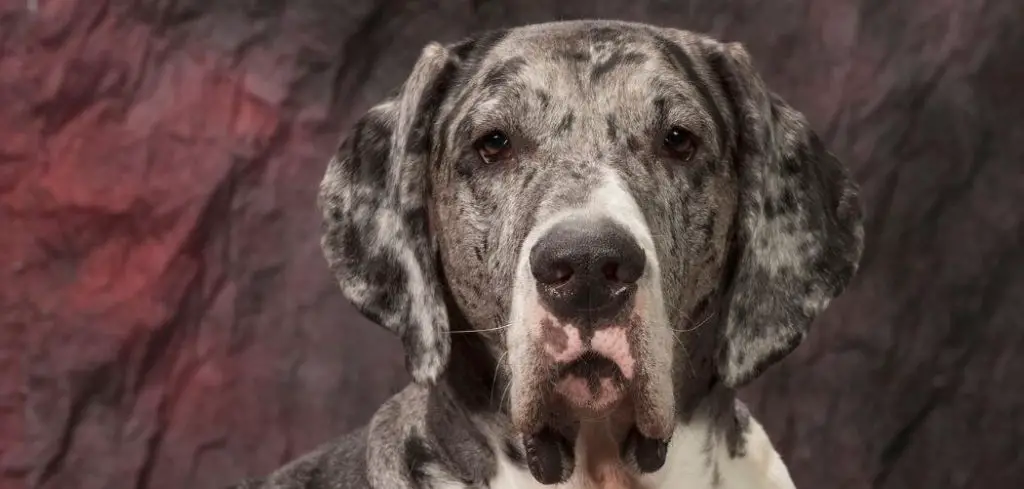When a dog is panting and struggling to sleep at night, it can be concerning. Nighttime panting paired with restlessness or wakefulness often indicates underlying health issues that need attention.
We outline the common reasons why a dog may pant and not sleep at night, what you can do, and when to seek veterinary help.
Table of Contents
Dog Panting and Not Sleeping at Night — Why It Happens
When a dog is panting and not sleeping at night, it may be due to anxiety, discomfort, or pain that prevents rest. Older dogs often experience this with cognitive decline or health conditions, while younger dogs may struggle with stress or an overly warm environment.

Dog Panting and Not Sleeping at Night: Common Causes
Anxiety and Stress
Anxiety is one of the most frequent reasons dogs pant and have trouble sleeping at night. Dogs may feel unsettled by changes in routine, new household members, loud noises, or separation from their owners. Panting, pacing, whining, and restlessness are common signs.
Nighttime anxiety can disrupt both the dog’s and the owner’s sleep. Providing a predictable bedtime routine, a calm sleeping environment, and comfort items such as blankets or toys can help.
Severe cases may require behavioral therapy or guidance from a veterinarian specializing in anxiety.
Read more: Dog Panting and Licking Lips at Night (Understanding this behavior)
Pain or Discomfort
Pain or physical discomfort can make it difficult for a dog to relax and sleep. Conditions like arthritis, gastrointestinal problems, dental issues, or injuries often cause restlessness and panting.
Dogs in pain may shift positions frequently, whine, or resist lying down. Identifying the source of discomfort is critical, as untreated pain can worsen and impact the dog’s overall health. Pain relief strategies should always be guided by a veterinarian.
Heat and Overheating
Excessive warmth or inability to regulate body temperature can trigger nighttime panting. Dogs may move around restlessly while searching for cooler spots to lie down.
Other signs of overheating include drooling, red gums, and restlessness. Ensuring proper ventilation, access to fresh water, and a cool sleeping area can help prevent heat-related sleep disturbances.
Severe heat stress is an emergency and requires immediate veterinary attention.
Hunger or Thirst
A dog that is hungry or thirsty may pant and have difficulty sleeping. Low blood sugar, inadequate feeding schedules, or dehydration can trigger restlessness and nighttime activity.
You should provide consistent feeding and water routines. Small, light evening meals and easy access to water may reduce nighttime panting related to hunger or thirst.
Painful or Urgent Medical Conditions
Serious health issues can disrupt a dog’s sleep and cause panting. Heart disease, respiratory problems, kidney issues, and other internal illnesses may lead to discomfort, increased heart rate, and labored breathing at night.
Dogs with these conditions often exhibit additional signs such as coughing, vomiting, or lethargy.
Timely veterinary evaluation is essential for diagnosis and treatment to improve both sleep quality and overall health.
Environmental Factors
Noisy, chaotic, or unfamiliar sleeping environments can prevent dogs from settling at night.
New surroundings, changes in household routine, or exposure to nighttime sounds can lead to panting and restlessness.
Creating a designated, quiet sleeping area with familiar bedding and maintaining consistent bedtime routines can help reduce environmental stress. Gradual desensitization to nighttime noises may also be beneficial.
Attention-Seeking Behavior
Some dogs learn that panting and moving around at night gains attention from owners.
Over time, this can reinforce restless behavior, making it appear that the dog is unable to sleep peacefully.
Setting boundaries, rewarding calm nighttime behavior, and avoiding reinforcement of attention-seeking antics can help your dog learn to relax at night.
Read more: Dog Panting and Itching At Night (Here’s why)
What to Do If Your Dog Is Panting and Not Sleeping at Night
Provide a calm, comfortable sleeping space away from noise and disturbances. Familiar bedding, toys, or calming scents may help your dog feel secure.
Monitor for signs of pain, illness, or discomfort that may be causing restlessness. If your dog shows symptoms such as limping, labored breathing, vomiting, or loss of appetite, contact your veterinarian promptly.
Ensure consistent bedtime routines and schedules for feeding, exercise, and rest. Predictable routines can reduce nighttime anxiety and help the dog settle more easily.
Offer adequate exercise and mental stimulation during the day. Proper daily activity helps expend energy, reducing restlessness at night.
For dogs with anxiety or behavioral causes, consult a certified dog behaviorist. They can create personalized strategies to improve nighttime rest and reduce panting due to stress.
When to Call or Visit Your Vet
Contact your veterinarian immediately if your dog’s nighttime panting is accompanied by:
Persistent or worsening panting at rest
Signs of pain such as limping, flinching, or vocalization
Coughing, vomiting, diarrhea, or sudden changes in appetite
Labored breathing, rapid heartbeat, or blue gums
Collapse or extreme lethargy
Early veterinary assessment can identify underlying medical issues and allow for timely treatment to improve comfort and sleep quality.
Read more: Dog Panting and Needy (Why your dog seeks constant attention)
Key Takeaway
Panting and inability to sleep at night in dogs can be caused by anxiety, pain, environmental factors, or underlying medical conditions. While occasional restlessness may be normal, persistent or severe nighttime panting requires attention.
Creating a calm sleeping environment, monitoring for health concerns, maintaining consistent routines, and seeking veterinary or behavioral guidance are essential for your dog’s well-being and restful nights.
